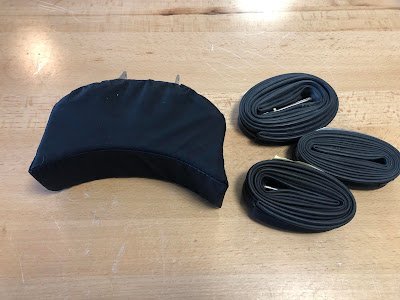2013 Catrike 700
$700
Not a typo and trike is in great condition and well maintained. I want a fast sale and a good home for a trike that as served me well.
Pick up only in Thousand Oaks, CA
One of the first 700s with the 20” wheels and still equipped with chrome-moly steel spindles (not the aluminum ones that cracked).
Mileage - 5,054
Includes an extra rear wheelset. An American Classic with 23/622 Schwalbe Durano and a 32/11 cassette. Also a couple of extra front wheels equipped with Chris King hubs.
Photo from earlier in the year taken in the Central Coast Wine Country
 |
| Sale does not include lights, frame bags, flag and of course helmet. But does include some extras listed at the end of this post. |
After 6 years of enjoying my 700 it’s now time to change course. I’ve spent enough time on my new ICE Sprint FS Steps E8000 to know I won’t be using my 700 enough to justify having it take up space in my garage.
Her are the details
53/39/30 Crankset with FSA carbon cranks.
DT-Swiss rim and Hub. 35/622 Kojak for a softer ride.
Extra long boom. Easy to cut if a shorter boom is needed.
28/406 Durano front tires
Wired CatEye computer
Only one small section of chain tube to route chain under frame
10 speed 36/11 Cassette
Inner and outer chain guard
10 speed Sram index rear shifter and non-indexed front shifter
Extra front wheels with Chris King hubs
Finer Recliner headrest for Catrike mount. Not used.
Tubes for 700 tires.
Extra wheelset. American Classic wheel and hub with a 10 speed 36/11 cassette and a 28/622 Durano tire.
DT-Swiss rim and Hub. 35/622 Kojak for a softer ride.
Extra long boom. Easy to cut if a shorter boom is needed.
28/406 Durano front tires
Wired CatEye computer
Only one small section of chain tube to route chain under frame
10 speed 36/11 Cassette
Inner and outer chain guard
10 speed Sram index rear shifter and non-indexed front shifter
Extra front wheels with Chris King hubs
Finer Recliner headrest for Catrike mount. Not used.
Tubes for 700 tires.
Extra wheelset. American Classic wheel and hub with a 10 speed 36/11 cassette and a 28/622 Durano tire.



























